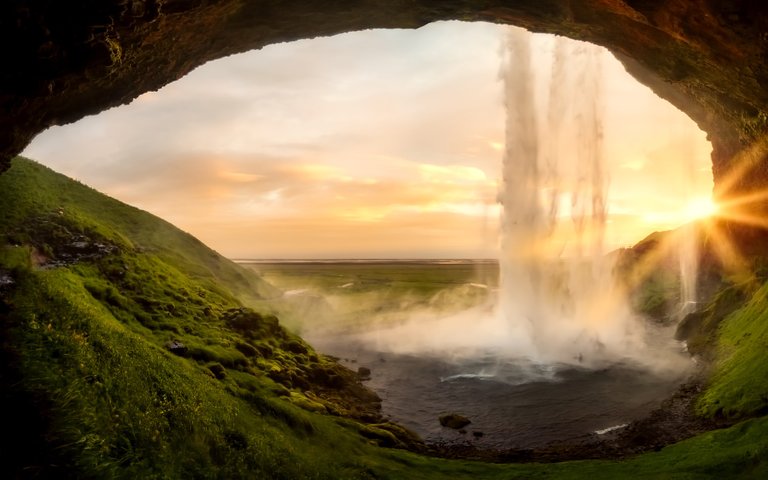
Most caves that are not near the sea, were made by water that wore away soft rock, such as limestone. Water from above ground sank down into the soft rock The water sank until it reached harder rock and then trickled along. For millions of years the water wore away the soft rock, carried it along small openings. The openings got bigger and bigger as more water flowed. In time these openings became huge caves/ caverns. When the top of a cave became very thin, it sometimes broke through producing a canyon.
Some Caves have beautiful pillars. Each drop of water leaves a bit of calcium carbonate. After many thousands of years an icicle - shaped forms as we know to be stalactites form and from the bottom up, stalagmites. The two sometimes meet to produce a pillar- like shape.
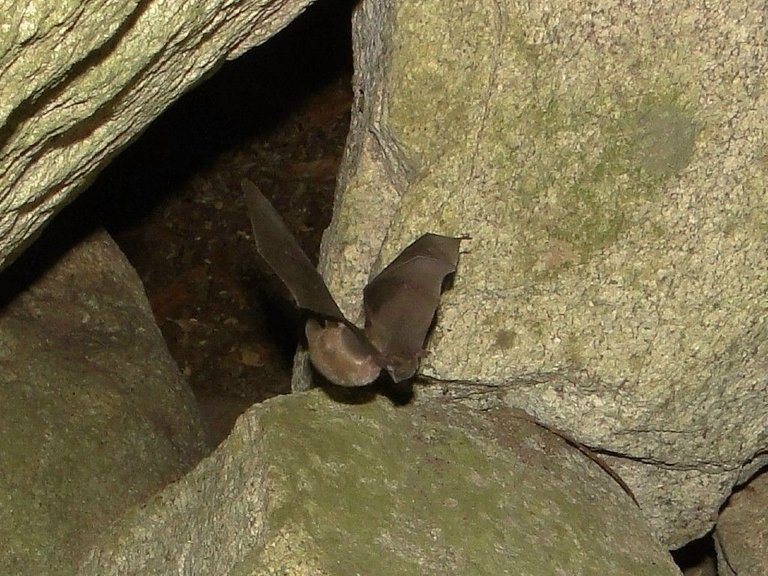
Mother nature certainly looked well after life on earth, making caves. They are home to many an animal such as hibernating bears, mountain lions, cougars etc. Besides the significance of caves to animal life, not forgetting bat's, many humans' lives have been saved by the shade and protection these chambers provide. Men made caves their home during the stone age and before that. They drew and wrote on the walls, leading us to gain enormous insight into their lives.
About 25 kilometers from my house in Krugersdorp, South Africa, lies the Cradle of humankind, a world heritage cite. This cite includes 2 different caves. Humans are drawn to caves. They want to explore and discover. There are different ways to explore by geologists and scientists. Entering these caves with a guide is to ensure that it's done in an orderly way, as not disturbing delicate areas. Some caves are still alive as they still make stalactites and stalagmites.
Getting back to 'my' caves.
The Wonder Cave. It dates back to 5 - 10 million years. It has formations up to 15 meters, a rimstone pool ( I've had some water from that pool and have never tasted purer ') spectacular formations called: mushroom, straw, popcorn and then the beautiful Madonna and her pearls. This cave was discovered by Italian miners in 1898. They brought out a form of calcite powder, which was used to make cement and toothpaste. Mining was stopped in 1902 due to the outbreak of war.
I find entering this cave amazing and exciting. You get a good workout too. You go down 87 stairs at a 45% drop. Then you enter an elevator which will take you down 80 meters to the cave. The cave is an enormous chamber and the entertaining guide will take you to all the beautiful formations. Those who want to taste the water may do so. Afterwards it's going in the elevator 80 meters up and walking up 87 stairs!! A remarkable outing.
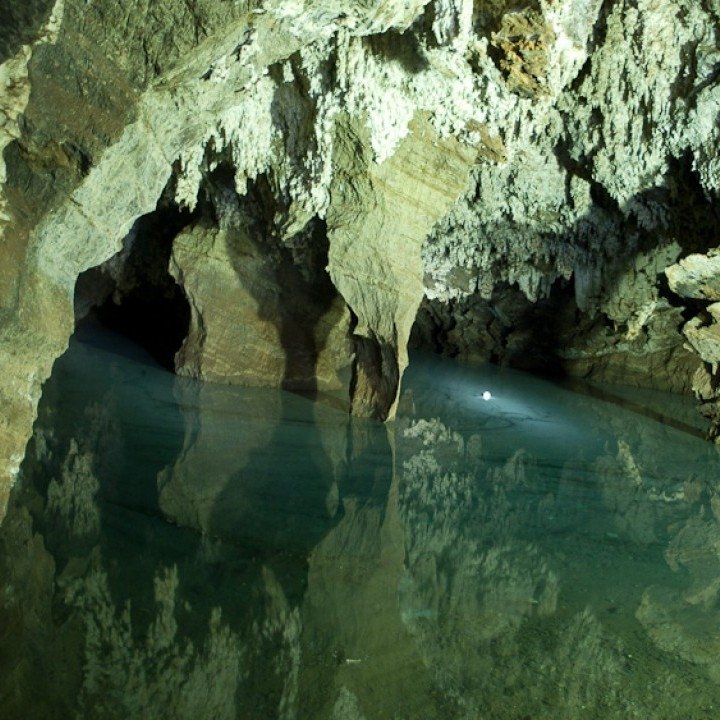
The more popular caves are the Sterkfontein caves. A word of warning, caves can be misleading if it has many chambers as these caves have. It's easy to get lost. In November 1984 a scuba expedition went awry when one of the team members failed to show up. This guy, Verhulsur, lost contact with a line strung through the cave, helping explorers to find their way to the entrance. The most sad irony of this was that the police search passed within 40 meters of him and neither saw each other. He was alive when passing each other, but was found after 3 weeks on a small island at the end of a blind tunnel off the main cavern. He died just hours before rescuers found him. He died of starvation and in the sand he wrote a message to his wife and mother.
Diving is no longer allowed in the caves. We can learn a lesson from this that we need to be so careful when exploring unknown places. Besides caves, I have great respect for the ocean as it is more than or much more dangerous than caves. They remain mysterious.
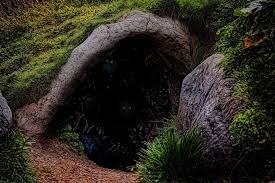
Sources : World Encyclopedia, Wikipedia own experience, Google Images (Labelled for re-use).
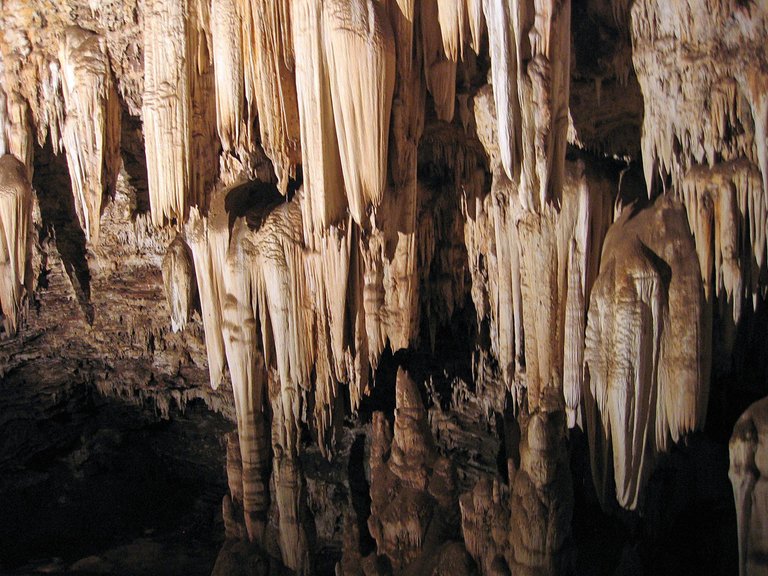
Wow !!!!!
Amazing mystery. cave...
Thank for showing awesome mystery.cave...
Specially this one is amazing..
I'm glad that you found it interesting
Indeed the beautyness of caves is something you can't describe with words, but images can!
You're quite right. It's impossible.
OMG! This Is Awesome :)
i am so amazed to see your post.it is a great post.
Thanks.
At my university, there was a deck above the entrance to one of my lecture halls. The deck had a crack in and some water would drip through the crack. The calcium in the water began to form stalactites. We observed it for a while, and they just got longer and longer. Amazing that even though this was a man made feature, nature still used this to make what it makes best. Nice post about caves.
Thank you. How interesting.
Well written content, it is very interesting informative. I live the pictures, they are all beautiful in their own way. Thanks a lot.
Thank you.
good job @ruthofisrae like it
Thanks.
Wow best pictures of southafrica i like it
Nice potography
The Gulf of Alaska - where two oceans meet but do not mix ❤

Wow awesome.
Thanks you very much...
Your posts are fascinating @ruthofisrael! You must be a great conversationalist.
An excellent post that brought back a flood of memories. From about 1969 to 1971 a group of us amateur cavers used to explore a cave very near the "Cradle of Humankind" we called it bat cave. I remember it had a circular hole in the ceiling at the bottom of which were bones of animals that had fallen in. I wrote post about it when I first started with steemit. Such a long time ago but the memories are still fresh.
Quite informative! Caves are full of mysteries.
Very nice blog.. amazing
I like nature and i wish if there is some day I can see this places